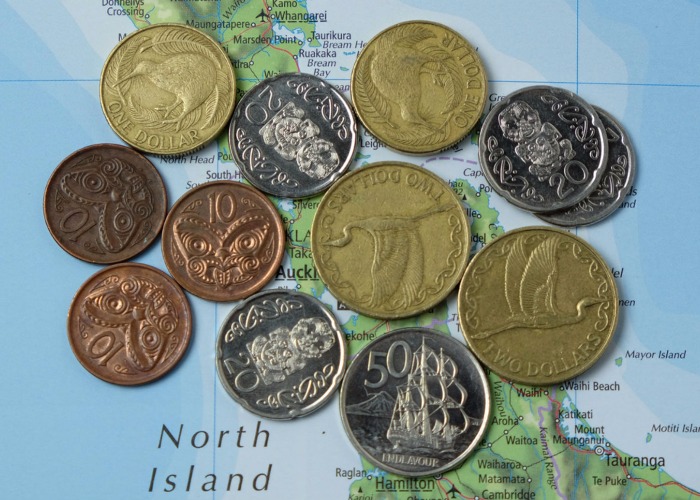Global finance: 7 money lessons from New Zealand

In the first in our series on financial habits from around the globe, we look at what New Zealanders can teach us about money.
Britain has had a diverse range of financial policies and proposals - some good, others terrible (we're looking at you, Poll Tax).
Perhaps we could take a few tips from someone else’s book.
As part of a new series, loveMONEY looks at how other countries manage their money matters to see what we could learn from them. First stop: New Zealand.
Getting rid of zero hours contracts
The parliament in New Zealand unanimously voted to outlaw zero hour contracts in March 2016.
From April 1 it became illegal for any new workers to be offered zero hour contracts. They must be offered a fixed, minimum number of hours per week, and won’t be penalised for turning down any work they get at short notice.
Current workers must be offered compliant employment terms by April 1 2017.
It wasn't easy for them though. It took 11 years of campaigning by Unite New Zealand to get to this point.
And it has involved tireless negotiations with food, hospitality and other companies as well as getting workers involved with the union to get it in motion.
The number of UK workers on zero hours contracts has risen by 20% in a year to more than 900,000, according to the Office for National Statistics.
But with Sports Direct banning zero hours contracts we could be seeing a very gradual change in the zero hours culture.
How to market a small town as a global hotspot
The town Kaitangata on the South Island of New Zealand had so many affordable homes and job opportunities that local residents decided to market it.
Kaitangata undertook a massive recruitment drive in June, teaming up with local businesses to offer discounted home-buying, legal costs and new opportunities to encourage more people to settle in the area.
There were an estimated 1,000 jobs in nursing, building, the military and more going.
They were hoping to attract the city types of New Zealand, but it unexpectedly went viral and got attention from Australia, the UK, Poland, Ghana and other places around the world.
By July they had already been swamped with more than 10,000 inquiries.
Using crowdfunding for a good cause
Crowdfunding isn't just about raising money for obscure gadgets; they can help public causes too.
Duane Major and Adam Gard'ner set up a major crowdfunding campaign on givealittle to buy privately-owned Arawoa beach to open it up to the public, and it was an overwhelming success.
Almost 40,000 pledges and a $150,000 (£83,000) boost from the Government and a generous $250,000 (£138,000) donation later, they'd hit their target.
The Government even chipped in an extra $200,000 (£110,000) at the end to seal the deal. They officially donated it to New Zealand's Department of Conservation and it's become part of the local national park.

Campaigners even snubbed a businessman who offered them money in exchange for private access to the beach for him and his family.
Giving money matters the attention they deserve
In New Zealand they devote an entire week every year to getting the public money savvy.
September 5-11 was New Zealand’s annual Money Week, themed around $how Me the Money.
The week saw loads of events based around ‘planning for your future’, looking at how the cost of everyday items can add up over 30 years of retirement.
Running since 2012, the Government’s money week covers an important personal finance topics like scams, savings and superannuation.
Living without Capital Gains, Inheritance and Council Tax
With none of these taxes to pay, New Zealand is an ideal spot for trade, investment and assets. It's been dubbed as a hotspot for entrepreneurial expats (that's if they don't mind the travel time between the UK and New Zealand).
New Zealand is one of only six 'free' economies in the world.
National taxes are only levied on personal and business income (the top Income Tax rate is 33% and the top Corporate Tax rate is 28%) and on the supply of goods and services.
The only exceptions on the Capital Gains Tax front are for a few specific investments, like patents, but these are very rare.
An acid test on interest-free student loans
The student loan scheme was made available in 1992 and became interest-free in 2006. The Government funds universities as well as funding the cost of keeping the scheme interest-free for borrowers who stay in New Zealand.
Figures show that 80% of students who can borrow do, suggesting that it's popular.
However, it has struggled to keep pace with rising costs of tuition fees and the cost.
A New Zealand Initiative think tank argues that the Government should start charging interest on new loans. It said that that the no-interest policy was of no help to poor students and had cost $6 billion (£3.3bn) in written-off interest.
The savings made by charging interest could be used to provide more means-tested help for students from poorer backgrounds.
The Child Poverty Action Group agrees that the Government should rethink interest-free student loans.
How to design a beautiful banknote
New Zealand has designed one of the most beautiful banknotes in the world.
The five-dollar note won Banknote of the Year in 2015 – a “clear winner” among nearly 40 eligible designs from a record 20 countries.

The brown and gold note features explorer Sir Edmund Hillary.
That said, we're usually in the billing (excuse the pun) for the top spot. Both England and Scotland's £5 notes have been nominated for the 2016 prize.
What do you think? Could we learn anything from New Zealand? Let us know in the comments below.
What to read now:
These are the world's weirdest homes
Funniest-named stores around the world
Comments
Be the first to comment
Do you want to comment on this article? You need to be signed in for this feature